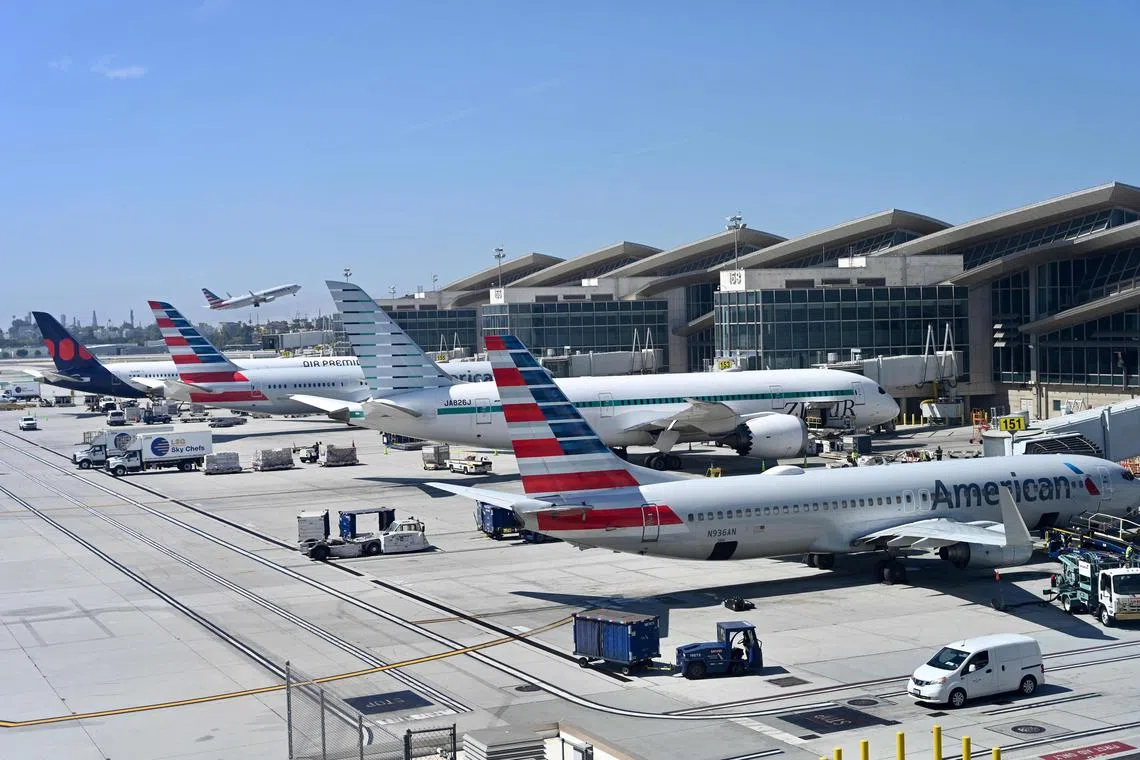US moves to improve airplane bathrooms for people with disabilities
Sign up now: Get ST's newsletters delivered to your inbox

Twin-aisle planes are already required to have an accessible lavatory.
PHOTO: AFP
WASHINGTON – The US Department of Transportation (DOT) on Wednesday announced that it had finalised new regulations to require more commercial aircraft to have accessible bathrooms, a long-awaited step to address complaints from disabled travellers about the difficulties of flying.
Under the regulations, new single-aisle planes with at least 125 seats will eventually be required to have at least one lavatory large enough for a disabled passenger and an attendant to enter and move around in.
Twin-aisle planes are already required to have an accessible lavatory.
“Travelling can be stressful enough without worrying about being able to access a restroom,” Transportation Secretary Pete Buttigieg said in a statement.
“Yet today, millions of wheelchair users are forced to choose between dehydrating themselves before boarding a plane or avoiding air travel altogether.”
The finalised regulations came out of a lengthy effort by the DOT, dating to the Obama administration, to develop new rules intended to improve air travel for people with disabilities.
In 2016, an advisory committee established by the department called for accessible bathrooms on new, larger single-aisle planes, and the department proposed new regulations in 2022 to carry out that recommendation.
The new requirement for accessible lavatories does not kick in immediately.
It will apply to new single-aisle planes that airlines order beginning in 2033 or that are delivered beginning in 2035.
However, that timeline is faster than what the advisory committee laid out in 2016 and what the DOT proposed in 2022.
Ms Heather Ansley, the chief policy officer for Paralysed Veterans of America, said the new regulations were the result of decades of advocacy to ensure that airline passengers with disabilities could have their basic needs met while travelling, and would not have to put their health at risk to fly.
“This really goes a long way in saying that we recognise that passengers with disabilities are people that deserve to have dignity and, just like every other customer, should have a chance to use a lavatory if they need to,” Ms Ansley said.
In written comments submitted to the DOT in 2022, two trade groups representing airlines, Airlines for America and the International Air Transport Association, expressed support for requiring accessible lavatories.
But they said that planes would have room for fewer seats as a result, which would cost airlines revenue and lead to higher fares. NYTIMES


